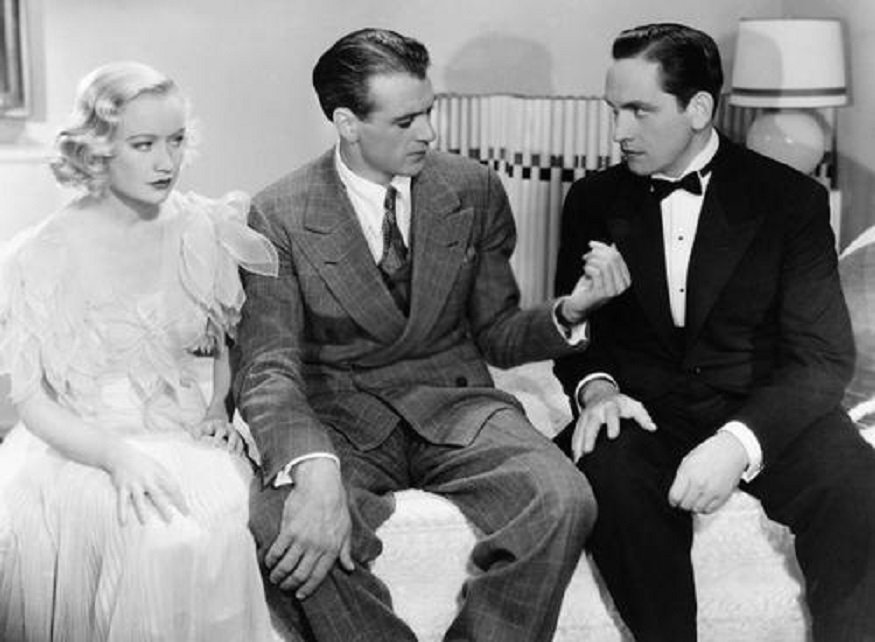Dear Etiquetteer:
I’m in a long-term ethically non-monogamous gay relationship. Currently I have a husband (together for 20 years, married for ten), see previous dates, and a boyfriend.
So, I’m traveling for work soon and my boyfriend is coming along. This is a conference in a large city, colleagues will be attending, and one I supervise is staying in the same hotel as I. I’m generally out and authentic at work, but I’ve not brought non-monogamy or my boyfriend into dialogue there. Should I take this colleague aside and let her know I’ll be there with someone that she may see me with, perhaps holding hands or leaving the hotel together? So that she’s not feeling awkward or have questions she might put to someone else, causing more consternation. Or do I just live my life and not worry about her or anyone else I know from work? What do I owe my colleagues in this regard?
Dear Conferee:
What you owe everyone involved, including yourself, is discretion. One couple’s open relationship or open marriage is another’s adultery. In private life, and even sometimes in social life, a “design for living” may be accepted or acknowledged with the consent of all parties, and has been with greater frequency. But in the workplace, that could still be challenging.
Etiquetteer couldn’t help thinking that if a straight male professional openly attended an out-of-town conference with his girlfriend, whether his wife approved or not, it would very definitely raise eyebrows, and possibly a call to Human Resources. Since polyamory remains to be generally accepted, the presence of your boyfriend should be invisible.
While in no way suggesting that your boyfriend is traveling with you ahem professionally, Etiquetteer turns for a solution to the Parisian demimonde before World War I, when wealthy men openly kept beautiful and capricious women for extramarital purposes. Cecil Beaton waxed rhapsodic about them in his delightful book The Glass of Fashion, and how they “thrived in an easy atmosphere that created a tacitly agreed place for them in the social scene.” The condition for that place meant never being acknowledged, especially by “respectable” women. “If a gentleman was seen at a restaurant by a lady of his world in the company of a grande cocotte,” Beaton continued, “there was never any question of ‘cutting’ him or of acknowledging his companion’s presence; while dining with this enigmatic woman . . . the gentleman was as invisible to his respectable friends as if he wore a magic cloak. He did not exist.*”
To see how this played out in real life we have only to look at the Titanic. At least two gentlemen in first class were traveling with mistresses. But the proprieties were observed by taking care not to parade their companionship — especially since the women of their families didn’t know and would not have approved. Benjamin Guggenheim and his mistress, Belgian cabaret singer Ninette Aubart, did not share a cabin; at least they each had separate cabins that did not adjoin. They took all their meals in the à la carte Ritz restaurant, to prevent as much as possible running into family members like Ida and Isidor Strauss. For handsome young Canadian Quigg Baxter that became unavoidable when he had to help his mistress Berthe Mayné into a lifeboat “introduc[ing] her to his puzzled mother and sister.**”
So Etiquetteer recommends an atmosphere of circumspection at your conference. Your boyfriend should not attend any of the conference’s social events with you (which it sounds like you aren’t planning anyway), and public displays of affection should be tempered. Should you happen to run into a colleague in the lobby or at a nearby restaurant, explain that your husband was unable to join you and that a friend came with you instead. There’s no need to be more specific than that.
Etiquetteer wishes you and all concerned a smooth and successful conference.
*Cecil Beaton, The Glass of Fashion (1954).
**Hugh Brewster, Gilded Lives, Fatal Voyage (2012). After the sinking, in which Quigg was lost, Berthe stayed for a time with his family in Montreal before returning to Europe. As for Ninette Aubart, the Guggenheim family may have helped her clandestinely “and kept the news of her existence hidden from Ben’s widow, Florette.”

